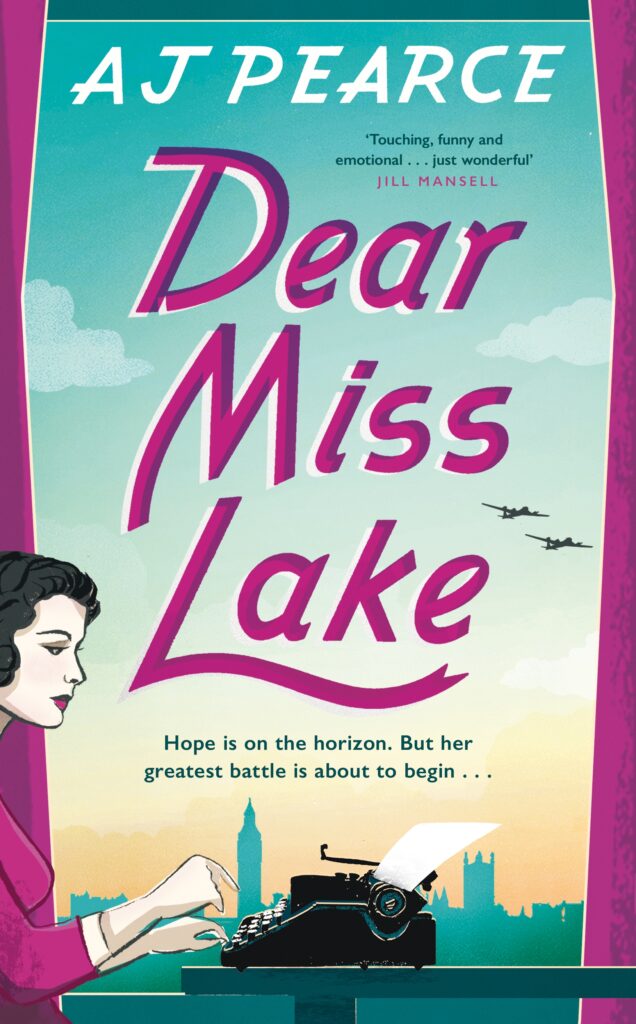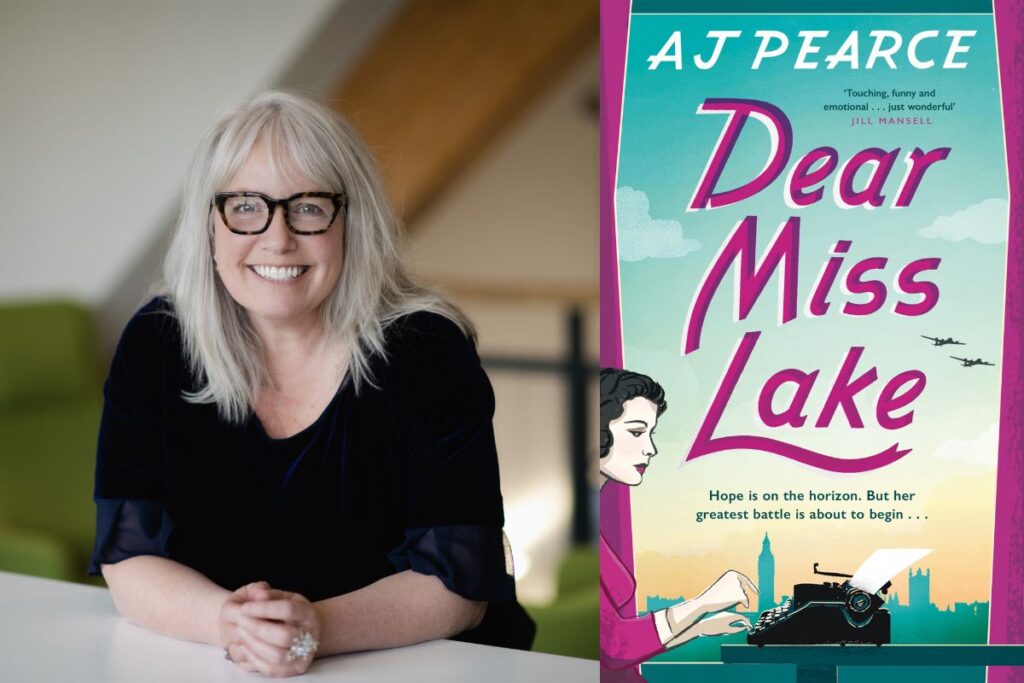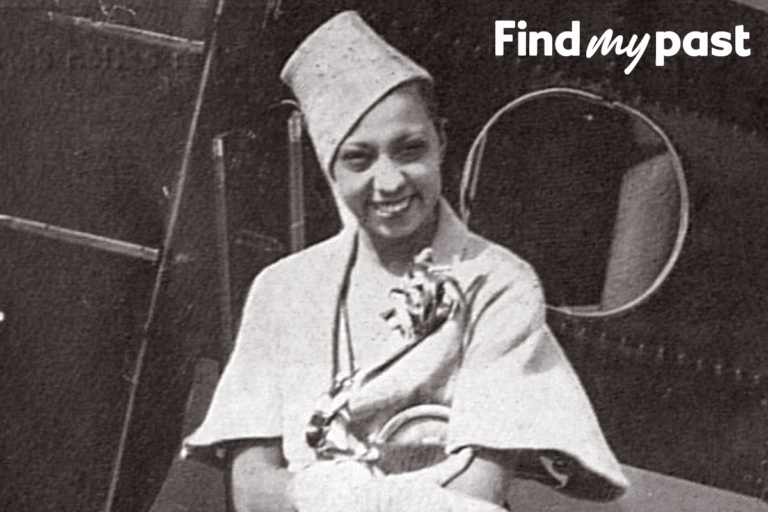Bestselling author AJ Pearce returns this year with her final instalment of The War Chronicles; Dear Miss Lake returns us to wartime London where Emmy Lake is facing her greatest challenge yet. To celebrate the books publication, we caught up with AJ to learn her tips on writing a book series.
The first book
To start at the very beginning, in the same way that it’s imperative to grab the reader in your first chapter (if not the first page), the first novel in a potential series needs to make as big an impact as possible. While you may have an overall vision for multiple sequels, at this point don’t worry about them – get this one right first. Just as you would if it was a standalone novel, give everything you can to the first one. This is your chance to break the door down with readers and publishers so that you can let the rest of the series through. Every novel asks a reader to come into its world. The first novel of your series needs to make sure that once they’re in the one you’ve created, readers won’t want to leave.
Keep Flexible
You may have a ten-book arc planned or be working with a story that is closely tied to historical events, but even if you’re a hard and fast planner, do give yourself the flexibility to explore unforeseen stories or inspiration. Keep your mind open to directions you hadn’t planned.
Ongoing research always throws up new ideas, but it’s the chance moments that are gold dust. My second novel changed completely thanks to a comment from a fascinating woman I met at a book event. The overall arc of the series remained the same but this one conversation about the challenges faced by young working mothers and widows in WW2 became the focus and heart of my novel Yours Cheerfully.
Readers’ personal experiences together with their comments and questions about your novels can be incredibly helpful, surprising and inspiring. Don’t ignore multiple messages of love for a particular character. It doesn’t mean you have to change anything, and a character may still have to leave in the next book, but the chances are you’ll make sure their exit storyline is absolutely brilliant. And when readers message you saying, ‘Please tell me you won’t let Charles die,’ you know they really care. There’s no better feeling.
Let Your Characters Help
One of the things I’ve loved most about writing a series is that you get to spend years with your main characters and take your understanding of them to an even deeper level. This is a joy, and the great thing is that the better you know them, the more they help shape the story. You’ll know what they will fight to the death for and what they will never give up. This can be a huge help in your plans.
By the fourth and final book in The Wartime Chronicles I knew my protagonist so well that she told me what would very nearly break her. That may sound weird, but you’re going to spend years with these characters. If they feel real after one book (as they should), by the end of a series you’ve almost forgotten that they’re not. Use your knowledge of your characters to check what you’re doing. At 40,000 words into my third novel, I realised my heroine couldn’t authentically fight for what I was planning. I scrapped the draft (a low moment tbh) and came up with something that she one hundred percent would. So do let them help you. Give the characters you enjoy writing more to do (they have to justify being in each book), be brave enough to lose them if required, and know them well enough to trust them as one of the editorial voices in your head.
Seed well but carefully
To an extent this ties in with being flexible. If you’ve an idea for later in the series, it’s great to plant seeds in advance. The character that never gives a view on something vital. The person who always avoids commitment or doesn’t turn up in a scene. However, unless you are totally sure of the future storyline, drop these seeds carefully to avoid boxing yourself in. This way something has the potential to become a key character trait or plot point, or could simply stay as a mild dislike of walnuts in cakes. It’s like an Easter egg that may become important two books later. Some readers might get an inkling at the time, but it mustn’t get in the way of the current story. Make it too obvious and readers will wonder why it’s not part of the plot.
Also, tread carefully on specifics. It would be good to mention that a character’s sister is a scientist if there’s a possibility you’ll need one later. Way more authentic than them suddenly (and conveniently) remembering out of the blue. Go too niche however, and two years later when you require a friendly physics genius, if you made Prof. Nicola Smith an analytical chemist, she’ll be no help at all.
Keep the challenges coming
I think this can feel tough. You’ve made the first book outstanding – everyone loves it which is wonderful, but now you have to come up with a sequel that’s equally as good and preferably even better. It’s that difficult second album. Don’t panic – it’s a problem any of us should be delighted to have.
Just keep the challenges coming. Keep upping the stakes and make the hurdles for your heroes even higher. This doesn’t mean that by Book Six you’re going to have to set fire to their house. Focus on their internal conflict: how your protagonists have grown, weakened, aged or matured. Dig out those seeds from earlier novels and work on them.
With each book in the series, you’ll know more about the world and characters you have created. You’re now fluent in its language, you understand your characters’ values and beliefs without even thinking. Your readers trust you and want to come with you to find out how their stories will end.
And when you come to write the last one, just as if it was a standalone novel, and as with every book in your series, give it everything you have. Challenge yourself right to the end. You, your characters and your readers deserve it.









